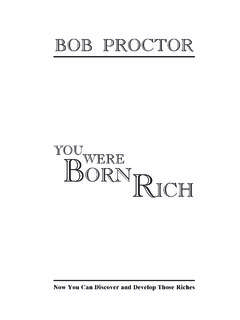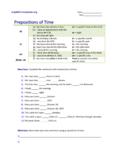Transcription of FEATURE - WHO
1 FEATURE The Return of Thalidomide: New Uses and Renewed Concerns Dr V Pannikar, Medical Officer, Communicable Diseases (Leprosy Group), WHO History Thalidomide or -(N-phthalimido) glutarimide was marketed in 1957 for morning sickness and nausea and soon became the drug of choice to help pregnant women . It went into general use by the following year and was widely prescribed in Europe, Australia, Asia, Africa and the Americas1. Allegedly, the drug was harmless and a lethal dose could not even be established2. However, in the early 1960s, in what might be described as the worst case of pharmaceutical oversight, the drug was found to be associated with a congenital abnormality causing severe birth defects in children born of women who had been prescribed this drug during pregnancy.
2 More than 10, 000 cases of birth defects were reported in over 46 nations following thalidomide exposure. Children were born with missing (amelia) or abnormal (phocomelia) legs, arms, feet and hands; spinal cord defects; cleft lip or palate; absent or abnormal external ears; heart, kidney, and genital abnormalities; and abnormal formation of the digestive system. It is estimated that 40% of thalidomide victims died within a year of birth3. Today there are approximately 5000 thalidomide survivors1. The thalidomide syndrome trig-gered a world wide response. Safety monitoring systems were set up to prevent this tragedy ever happening again and the drug was taken off the market in many countries in 1961.
3 Thalidomide in Leprosy A few years later, however, the drug thalidomide was reintroduced as treatment for a complication of leprosy called erythema nodosum leprosum (ENL). Although the evidence was not fully established, very soon the drug was heralded as the drug of choice for the management of ENL reactions in leprosy and regulatory authorities granted exemption from licensing requirements to enable doctors to obtain limited supplies of thalidomide under strictly controlled circumstances for use in named patients. Thalidomide's effectiveness in minimizing symptoms of ENL was mainly due to its antipyretic action.
4 Its effectiveness in controlling neuritis, the major cause of permanent disabilities in leprosy, was limited. Several controlled studies done in the 70's have demonstrated that predni-solone is more effective in controlling ENL and associated neuritis4-6. In addition, it was demonstrated that clofazimine, an anti-leprosy drug introduced on a small scale in the early 60's had anti-inflammatory action7,8. Studies showed that clofazimine is the drug of choice for the management of chronic, recurrent ENL reactions, as it had both anti-reaction and anti-leprosy effect. Moreover, while almost all patients given thalidomide relapsed after discontinuation of the drug, none of the patients treated with clofazimine for ENL reactions relapsed9-11.
5 The drug clofazimine is now a component of the multidrug therapy (MDT), introduced by WHO in 1981 as the standard treatment for leprosy. The presence of clofazimine in the combination has significantly reduced the frequency and severity of ENL reactions world-wide12,13. Today ENL reaction is a rare complication, limited to a small proportion of multibacillary patients. Most of the ENL reactions are mild in nature and do not require any specific treatment except with some analgesics/antipyretics. In those suffering ENL associated neuritis, the drug of choice is prednisolone. For chronic recurrent reactions the drug of choice is clofazimine.
6 Thalidomide in other indications The above points clearly demonstrate that there is no place for thalidomide in leprosy. But very often this disease is used as an entry point to reintroduce thalidomide for a multitude of other indications. Millions of treatments are being prescribed annually and almost all of it is for non-leprosy conditions including cancer treatment and use in HIV. There are limited trials demonstrating the efficacy of thalidomide in other conditions14,15. Each condition must be evaluated in its own right and there must be put in place stringent restrictions on its availability. In addition there must be a monitoring system in place.
7 There is no justification in extrapolating data from monitoring systems for leprosy to other conditions. The medical community that support the use of thalidomide for other conditions should make their own case for the drug. They cannot base it on the leprosy studies which are anything but exhaustive. In conclusion Today, a large number of thalidomide babies continue to be born each year16-18 possibly reflecting regulatory insufficiency and widespread use under inadequate supervision. In Brazil, which has more than 1000 registered thalidomide victims, the last officially known case was born in 199519,20. There is evidence that second generation babies with similar deformities are being born to thalidomide victims21,22.
8 In the US, Celgene Corporation has had FDA approval to market the drug since 1998 for the cutaneous manifestations of moderate to FEATURE severe erythema nodosum leprosum. In Europe, the US company Pharmion Corp and French rival Laphal have both secured orphan drug status for thalidomide and have applied to market the drug as a therapy for multiple myeloma and for ENL in the EU. The EU is currently holding discussions on the re-launch of thalidomide. Whatever the outcome of the EU discussions, it cannot be over emphasized that any potential benefit with thalidomide must be balanced with the known toxicity and the accompanying ethical and legal constraints on its use.
9 Experience has shown that it is virtually impossible to develop and implement a fool-proof surveillance mechanism to combat misuse of thalidomide. References: 1. What is Thalidomide? TVAC: Thalidomide Victims Association of Canada, September 01, 1999. Available: 2. James JS. (ATN) Thalidomide and HIV: Background. AIDS Treatment News Issue #179, July 23, 1993. Available : 3. Lenz W. The History of Thalidomide. TVAC: Thalidomide Victims Association of Canada, September 01, 1999. Available: 4. Dharmendra. Leprosy Volume 1, 1978, Kothari Medical Publishing House, Bombay, India. 5. WHO. The final push strategy to eliminate leprosy a public health problem, questions & answers, second edition, 2003, WHO, Geneva.
10 6. Ramu G and Iyer CG. Treatment of reactions in leprosy. In : A window on leprosy, 1978. Edited by Chatterjee BR., published by Gandhi Memorial Leprosy Foundation 7. Browne SG. B 663 - possible anti-inflammatory action in lepromatous leprosy. Leprosy Review, 1965, 36: 9. 8. Waters MFR. Transactions of the Ninth International Leprosy Congress, International Journal of Leprosy, 1968, 36: 560. 9. Iyer CG et al. WHO coordinated short term double blind trial with thalidomide on the treatment of acute lepra reactions in male lepromatous cases. Bull World Health Org 1971, 45: 719. 10. Iyer CG, Ramu G. An open trial with clofazimine in the management of recurrent lepra reaction using thalidomide as a control drug. Leprosy in India, 1976, 48: 690.












![For unto Us a Child is Born [From: Messiah]](/cache/preview/2/4/d/e/9/5/b/2/thumb-24de95b257c15b2b59ee6cc6a5ab6362.jpg)



